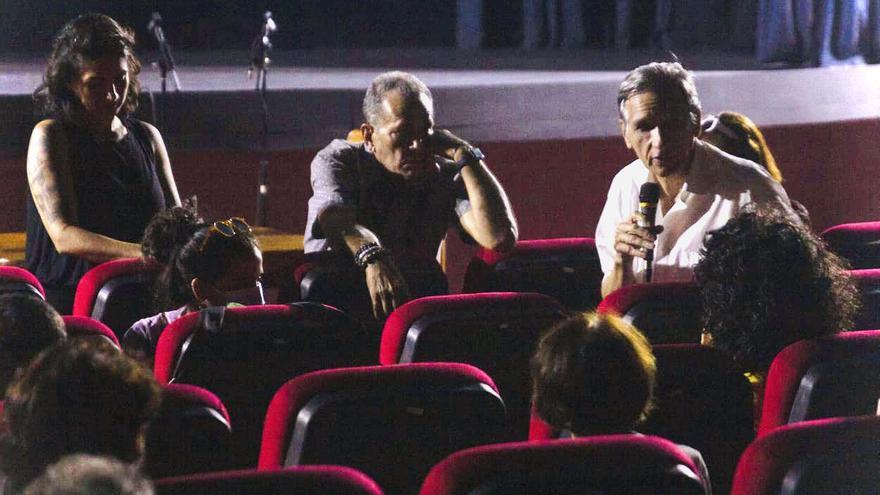
![]() 14ymedio, Havana, 26 December 2023 — After perpetrating numerous acts of censorship against the works of several filmmakers at the beginning of the year, the Ministry of Culture topped it all off last June. The broadcast on Cuban Television of an unauthorized version of the documentary La Habana de Fito (Fito’s Havana), directed by Juan Pin Vilar, unleashed a swell of protests in the guild, which ended with the formation of the Assembly of Cuban Filmmakers (ACC).
14ymedio, Havana, 26 December 2023 — After perpetrating numerous acts of censorship against the works of several filmmakers at the beginning of the year, the Ministry of Culture topped it all off last June. The broadcast on Cuban Television of an unauthorized version of the documentary La Habana de Fito (Fito’s Havana), directed by Juan Pin Vilar, unleashed a swell of protests in the guild, which ended with the formation of the Assembly of Cuban Filmmakers (ACC).
The signing, by more than 600 filmmakers, of a letter condemning the actions of the authorities caused the regime to agree to meet “peacefully” with the filmmakers.
However, if on the side of the creators there were renowned figures such as the director Fernándo Pérez, the ministry could not be left behind. Alpidio Alonso and Fernando Rojas, minister and deputy minister of Culture, respectively, in addition to the first deputy minister Inés María Chapman and the head of the ideological department of the Communist Party, Rogelio Polanco, escorted Ramón Samada, then president of the Cuban Institute of Cinematographic Art and Industry (ICAIC), to the meeting with the filmmakers.
From the duel between bureaucrats and artists, unfortunately, not many solutions to the claims of the guild were born. On the contrary, the meeting only recalled the tension in the atmosphere and the intensity with which Samada demanded that the conversation not be recorded. Miguel Coyula, one of the directors present, turned a deaf ear and recorded, in audio and video, several of the official’s warnings: “No one was forbidden anything here. Let’s not challenge ourselves.”
Ignoring the suspicion and official warnings, the filmmakers continued to meet, asking for the rehabilitation of the censored works and the emigrated filmmakers, consolidating their internal organization and demanding transparency.
When the Ministry of Culture finally dismissed Samada because he couldn’t “enlist” the filmmakers, they also protested. “Cuban cinema does not belong to a ministry or an institution. [The institutions] have to put themselves at the service of the artists and not the other way around,” they claimed.
Gradually, the public interventions of the ACC were diminishing while its ranks decreased. Several of the filmmakers who ended up forming the board of directors of the Assembly now live outside the Island. What seemed to be an advance of the world of culture against power was left in timid reproaches that, once again, stumbled against the wall of silence of the authorities.
Translated by Regina Anavy
____________
COLLABORATE WITH OUR WORK: The 14ymedio team is committed to practicing serious journalism that reflects Cuba’s reality in all its depth. Thank you for joining us on this long journey. We invite you to continue supporting us by becoming a member of 14ymedio now. Together we can continue transforming journalism in Cuba.
